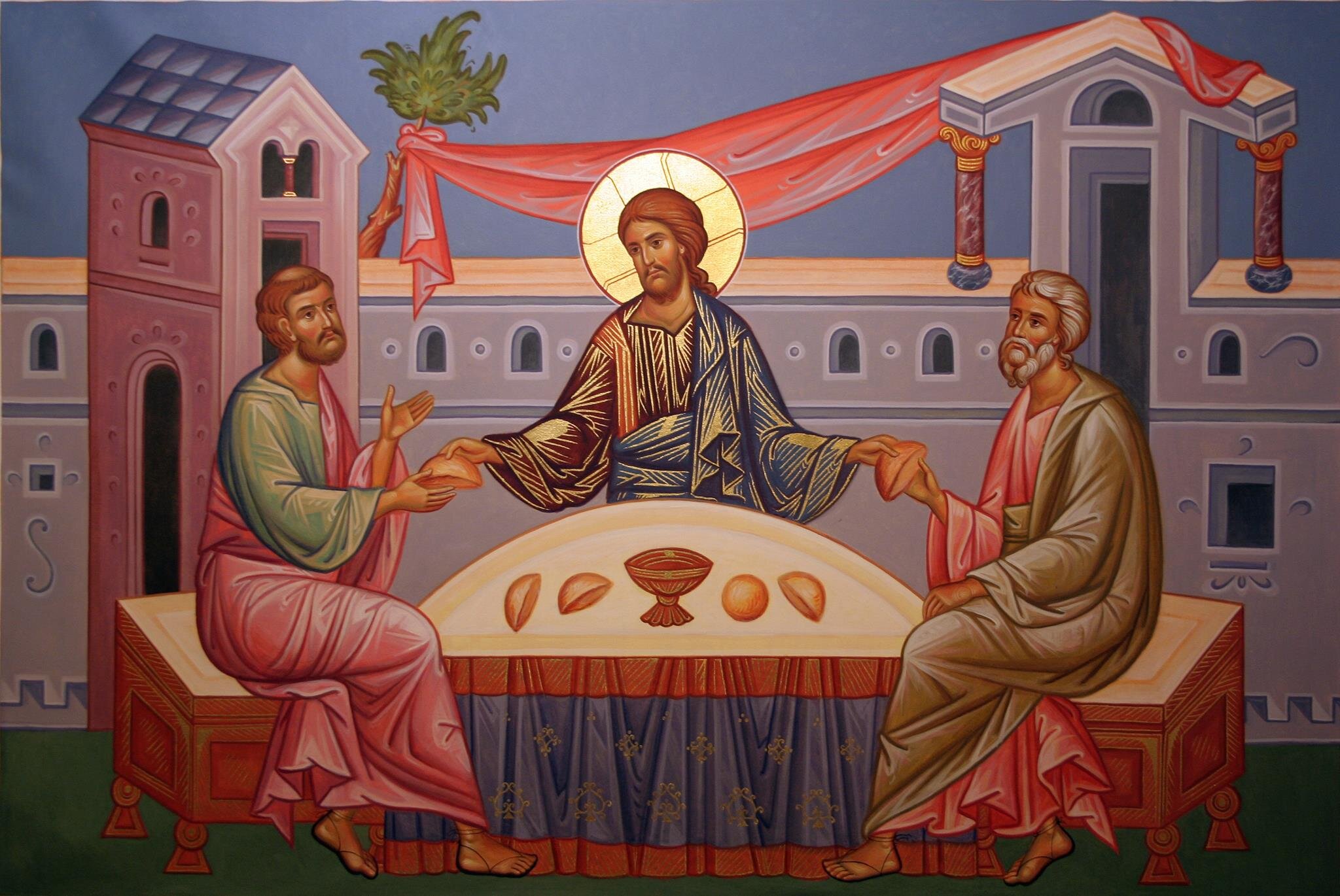Sadness and the Resurrection
Easter Monday (observed)
April 7, 2021
St. Luke 24:13-35
Alleluia! Christ is risen! He is risen indeed! Alleluia!
The fall steeped the world in corruption. Since then our entire race has been walking in sadness. Picture Adam weeping as the blood of his son seeped into the earth. And Eve sobbing as her firstborn stormed off into exile. The sadness continues in every age, in every family.
Disciples of Jesus are not exempt. Sadness, suffering, even persecution awaits them. Sadness comes in the church’s struggle for faithfulness and charity. Sadness comes in the death of those we love. Sadness comes in the many times we have succumbed to the weakness of our fallen nature.
Yet the resurrection of Jesus is truly good news in such a way that we should not fall into despair. It’s not hard to picture the scene with Jesus walking on the road to Emmaus, saying, “What kind of conversation is this that you have with one another as you walk and are sad?” We should not criticize them too harshly. True, these men did not have a right faith. They did not believe the word of Jesus that He would rise again; and they did not believe the women who testified of His resurrection. St. Augustine’s gloss is vivid: “They were walking along, dead, with Christ alive. They were walking along, dead, with life itself. Life was walking along with them, but in their hearts life had not yet been restored.”
Can we criticize these disciples without criticizing ourselves more? For we have more than the words of the initial witnesses in a time of deep grief. We have the testimony of many eyewitnesses, who saw our Lord, ate with Him, touched Him. Their testimony is written to us in blood.
The resurrection should fill us with the greatest joy. How then can we, too, be walking along dead, though we have received the Word of Life?
Easter Sunday is all about the resurrection. But the Gospel for tonight is about how the resurrected Jesus continues with us.
This Gospel calls us to see Jesus in the same place the Emmaus disciples did: in the breaking of the bread. That is where and how the Lord now wishes to be recognized. The risen body of Jesus shows us His triumph over death – but the breaking of the bread, i.e., the Lord’s Supper, shows us that His resurrection is joined to us. He whom death could not hold attaches us to Himself, with the promise that death cannot hold us either, since we are united with Him. Here, again, is how Augustine put it:
We break bread, and we recognize the Lord. It was for our sake that he didn’t want to be recognized anywhere but there, because we weren’t going to see him in the flesh, and yet we were going to eat his flesh. So if you’re a believer, any of you, if you’re not called a Christian for nothing, if you don’t come to church pointlessly, if you listen to the Word of God in fear and hope, you may take comfort in the breaking of bread. The Lord’s absence is not an absence. Have faith, and the one you cannot see is with you.
The longer we live, the more things we will find to be sad about. But the Lord is with us through all the sadness. He Himself has been through the deepest sadness, and has burst open the portal to all joy. So being a Christian doesn’t mean denying sadness or having to hide it for fear of shame. But it does mean that we see the end of all sadness in the resurrection of Jesus, our chief therapy and anti-depressant is in this holy Eucharist, and we are confident in the coming day when Christ will wipe away every tear. So be glad this bright Easter week and confess:
Alleluia! Christ is risen! He is risen indeed, Alleluia!
Alleluia! Christ is risen! He is risen indeed, Alleluia!
Alleluia! Christ is risen! He is risen indeed, Alleluia!
